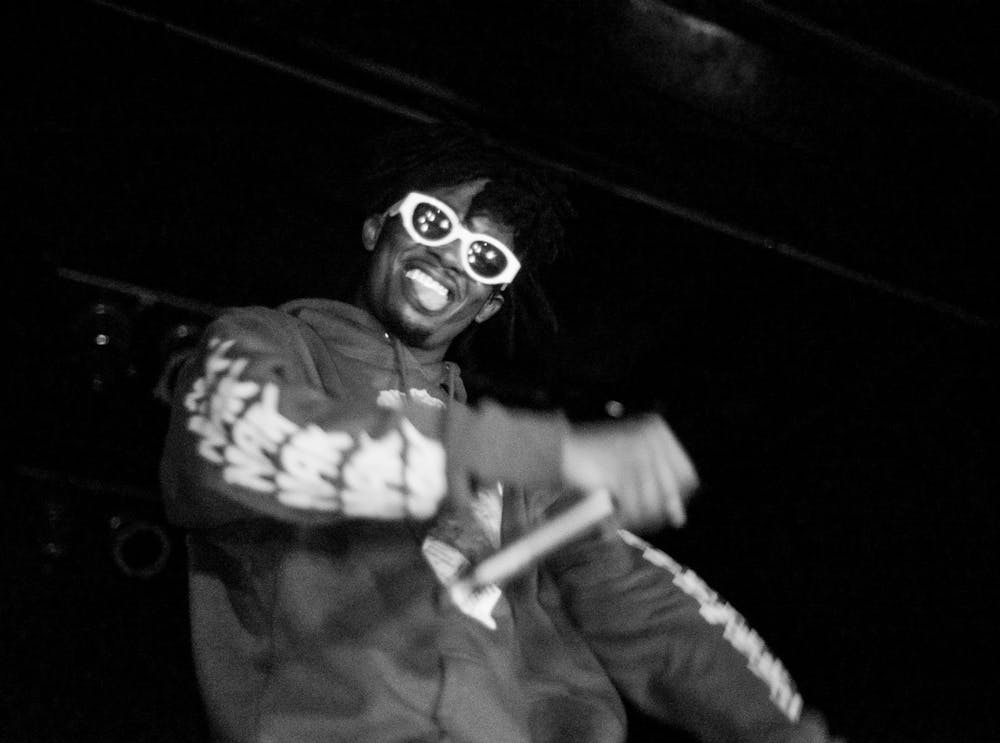The streaming era has effectively killed the album as the standard by which to consume and judge music. Because every individual song can now be listened to out of its original album context, the traditional notion of albums as artists’ defining statements is outdated. Kanye West was, as always, among the first to recognize the opportunity to innovate this new method of listening presented — his 2016 album, “The Life of Pablo,” was released to the public as an unfinished product and periodically updated, showing how the album was no longer a singular work fixed in time and place, but rather one of many different ways to consume music.
Which brings us to Kanye’s latest protégé, Atlanta rapper Playboi Carti. Carti’s gradual rise in the SoundCloud rap scene gave him a dedicated cult following among fans of “mumble rap,” but his popularity increased dramatically after the release of 2018’s “Die Lit,” an album which marked such a distinct change from previous mainstream rap that it led some to question whether it even belonged in the same genre. Moreover, after he announced “Whole Lotta Red” would be the title of his next album, 2019 turned into a non-stop barrage of leaks, peaking in May when an unofficial upload of “Pissy Pamper (Kid Cudi),” a song by Carti and Young Nudy, reached number 1 on the US Viral 50 Spotify chart. From then on, the hype around “Whole Lotta Red” reached deafening levels. But from Carti himself, there was radio silence.
2020, too, nearly came and went without an album. Towards the end of the year, however, his social media trolling became a bit more coherent than usual, and on Dec. 22 “Whole Lotta Red” became available for pre-order with a Christmas Day release date. With Kanye on tap as executive producer, the album was a star-studded affair, with features of Future, Kid Cudi and West himself — but it also took on some of West’s inclination towards last-minute tinkering. This resulted in an album that should’ve been a polished expression of Carti’s innovative brilliance turning sloppy, with too many songs and conflicting musical ideas. But with more music on the way in the form of a deluxe album, “Whole Lotta Red” is far from the last word on his output in 2019 and 2020, and treating it as such is counterproductive.
All this being said, the album is fitfully enjoyable, with jaw-dropping moments nestled alongside head-scratching ones. The first half of the album is the more uneven one, but even there Carti shows off his unbridled creativity. Generally speaking, this section of the album functions as an extension of “Die Lit”s most aggressive and repetitive moments, but it’s much more abrasive than any moment on that album. “JumpOutTheHouse,” much like “Flatbed Freestyle” on his previous album, seems destined to become a meme, with Carti screeching over a mind-numbing and clunky beat — which at first is unbearable, but after repeated listens becomes intensely cathartic. Unfortunately, the experimental and unrefined nature of this first half only occasionally pays dividends — often, as on “New Tank” and the interminably long Kid Cudi collaboration “M3tamorphosis,” the result is both dull and irritating.
Things change with “N3w Neon,” a glimmering and poppy anthem, which features Carti delivering catchy bars in his “baby voice” over a remarkable Maaly Raw beat. This is followed by “Control,” a love ballad with wonderful, head-spinning production from Art Dealer, which sounds for all the world like an ode to Carti’s now-estranged baby mama Iggy Azalea. Carti has never been the most engaging lyricist, and “Control” is no exception, but his passion comes through loud and clear. These two songs mark a dramatic shift in both tone and quality for the album, with the second half emerging as more refined and accessible than the first.
As uneven as “Whole Lotta Red” is, and as much hatred and disappointment as it’s generated from those who expected an album that sounded like the most popular leaked tracks, there is no denying that it represents a bold new artistic direction. Playboi Carti has made a living pushing the boundaries of hip-hop, and he deserves credit if only for his unwillingness to bend his vision to suit mainstream tastes. His new album may well go on to become an influential classic, but even if it doesn’t, his ability to innovate still makes him perhaps the most important hip-hop artist on the planet.







